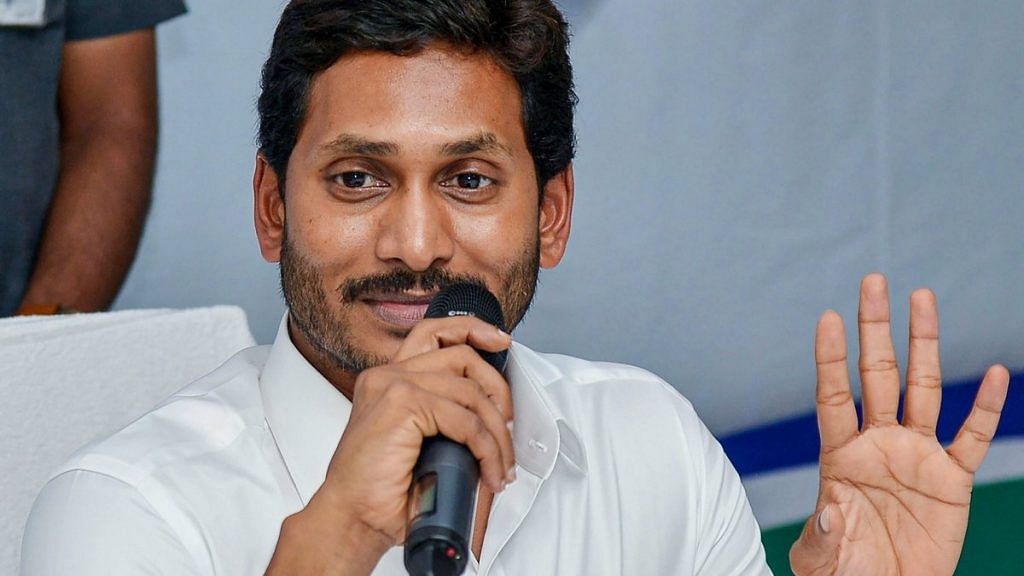Hyderabad: Andhra Pradesh Chief Minister Jagan Mohan Reddy’s allegations against senior Supreme Court Justice N.V. Ramana and high court judges aren’t the only legal tangles he and his government are facing.
Over the last 16 months since Jagan’s YSR Congress Party unseated N. Chandrababu Naidu’s TDP, there have been as many as 100 high court orders against the state government’s decisions, its representatives told ThePrint. The representatives said the most recent of these is a stay on investigations into alleged irregularities, particularly land deals in the Amaravati capital region, during the previous TDP regime.
On Saturday, this ongoing confrontation took an unprecedented turn when Jagan’s YSR Congress Party government levelled allegations of corruption and bias against Justice Ramana.
In an explosive letter to Chief Justice of India S.A. Bobde, which was written on 6 October and made public Saturday, CM Jagan accused Justice Ramana and former CM Naidu of corruption, political bias and trying to topple the government.
The letter also alleged that Justice Ramana was influencing the state’s judicial process to protect TDP, citing an alleged “proximity” to Naidu.
Last month, the Andhra Pradesh High Court had ordered a gag on media reporting in the state government’s FIR into an alleged land scam, which had named Justice Ramana’s kin and a former government official who worked under the TDP regime.
Also read: YSRCP rebel MP Raju cheated PNB-led consortium by ‘siphoning off bank funds’, CBI says
Stay on 3-capital plan & compulsory English medium
The Jagan government’s ‘three-capital’ plan for Andhra Pradesh — an executive capital at Visakhapatnam, judicial capital at Kurnool and a legislative capital at Amaravati — also came crashing when the high court issued a stay on the decentralisation of the administration.
There are around 90 petitions in the high court challenging the state government’s decision to have three capitals. Several farmer association groups and a few TDP leaders have also filed petitions opposing the state government’s proposal.
The high court had also directed the government to restore N. Ramesh Kumar as the state election commissioner earlier this year, following which the government approached the Supreme Court, which refused to stay the high court’s direction. Kumar, a Naidu regime appointee, had decided to defer local body polls citing the Covid-19 pandemic.
The state government’s decision to increase the backward classes quota in the local bodies to 34 per cent from 27 per cent was also struck down by the high court. This increase in backward classes quota would have meant 60 per cent reservation for the backward classes, Scheduled Castes and Scheduled Tribes, above the Supreme Court’s 50 per cent cap on reservations for all categories.
The high court had also struck down an order by the state government making English medium mandatory from classes 1 to 6 in all government schools. The court had then the Jagan government’s decision unconstitutional and violative of several acts, including the Right to Education. The Andhra Pradesh government later moved the Supreme Court, but was unable to get a stay on the high court verdict.
According to the state government representatives, most of the petitions filed against the present dispensation are by opposition party leaders and their supporters.
Also read: Life of a judge is not a bed of roses, says Supreme Court judge NV Ramana
